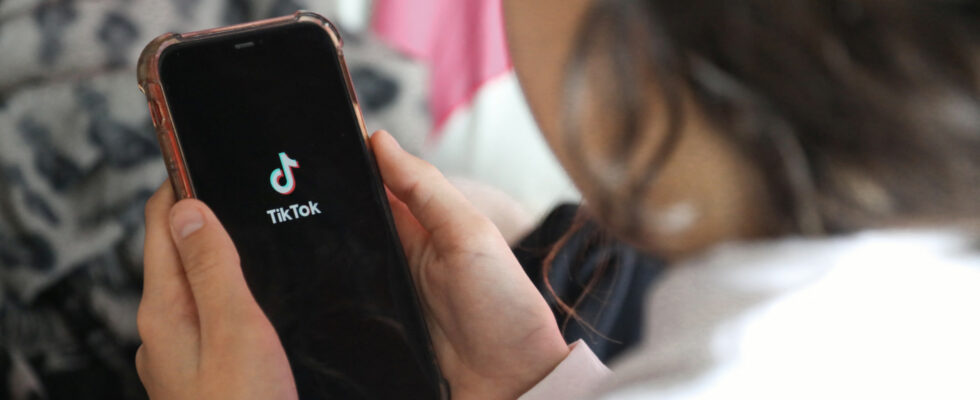Camille Moreau, with AFP / Photo credit: MAEVA DESTOMBES / HANS LUCAS / HANS LUCAS VIA AFP
The National Assembly definitively adopted on Tuesday, unanimously, a bill aimed at better protecting the image rights of children in the face of the excesses of certain parents exposing them without restraint on social networks. This consensual text is a response to the slippages denounced by associations, such as those of “vlogs” (video blogs) run by parents sharing family intimacy, sometimes in a race for “likes” in search of advertising revenue.
“Private life”
It aims more broadly to “empower” parents in the face of the risk of malicious use of shared images. And to tell children “that their parents do not have an absolute right over their image”, explained its author, the Macronist deputy Bruno Studer. Deputies and senators having failed to agree on certain points, it was the lower house which had the last word, with the definitive adoption of its version of the text, supported by the government.
This law introduces the notion of the child’s “private life” into the definition of parental authority in the civil code. And specifies that the minor’s right to image is protected “jointly” by both parents, taking into account the opinion of the child. If there is disagreement between parents, the judge may prohibit one of them “from publishing or broadcasting any content relating to the child without the authorization of the other parent”. In serious cases of attack on the dignity of a child, the text even opens the possibility of a forced delegation of parental authority.
1,300 photographs published online before the age of 13
A judge may thus entrust the exercise of the child’s image rights to a third party, such as a family member for example, or even in serious cases proceed to a total delegation of the exercise of this parental authority. The Assembly insisted on maintaining this provision which the Senate considered unnecessary. The opposition welcomed on Tuesday the “educational” nature of the law, while questioning its “real impact”. Several deputies criticized the majority for proceeding in small steps when it comes to the protection of children in the digital world, rather than through a major law.
According to figures cited during the debates, a child appears on average “in 1,300 photographs published online before the age of 13”. And “50% of the photographs exchanged on child pornography forums were initially published by parents on their social networks”. “Certain images, notably photographs of naked babies or young girls in gymnastics outfits, are of particular interest to pedophile circles,” emphasized Bruno Studer. Beyond “sexualized content”, he also mentioned cases of images “likely to harm the child in the long term”, sometimes causing cyberharassment.
